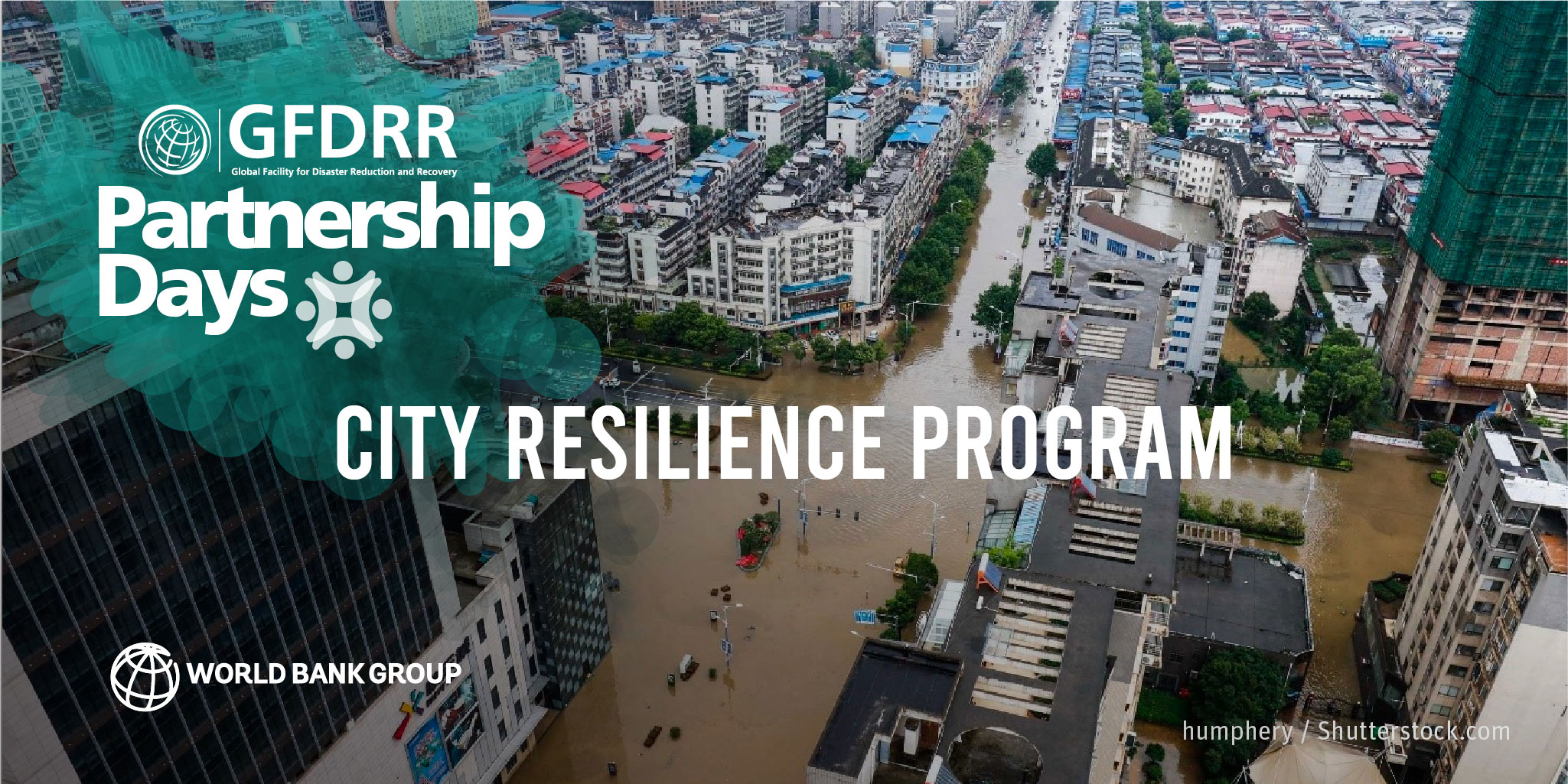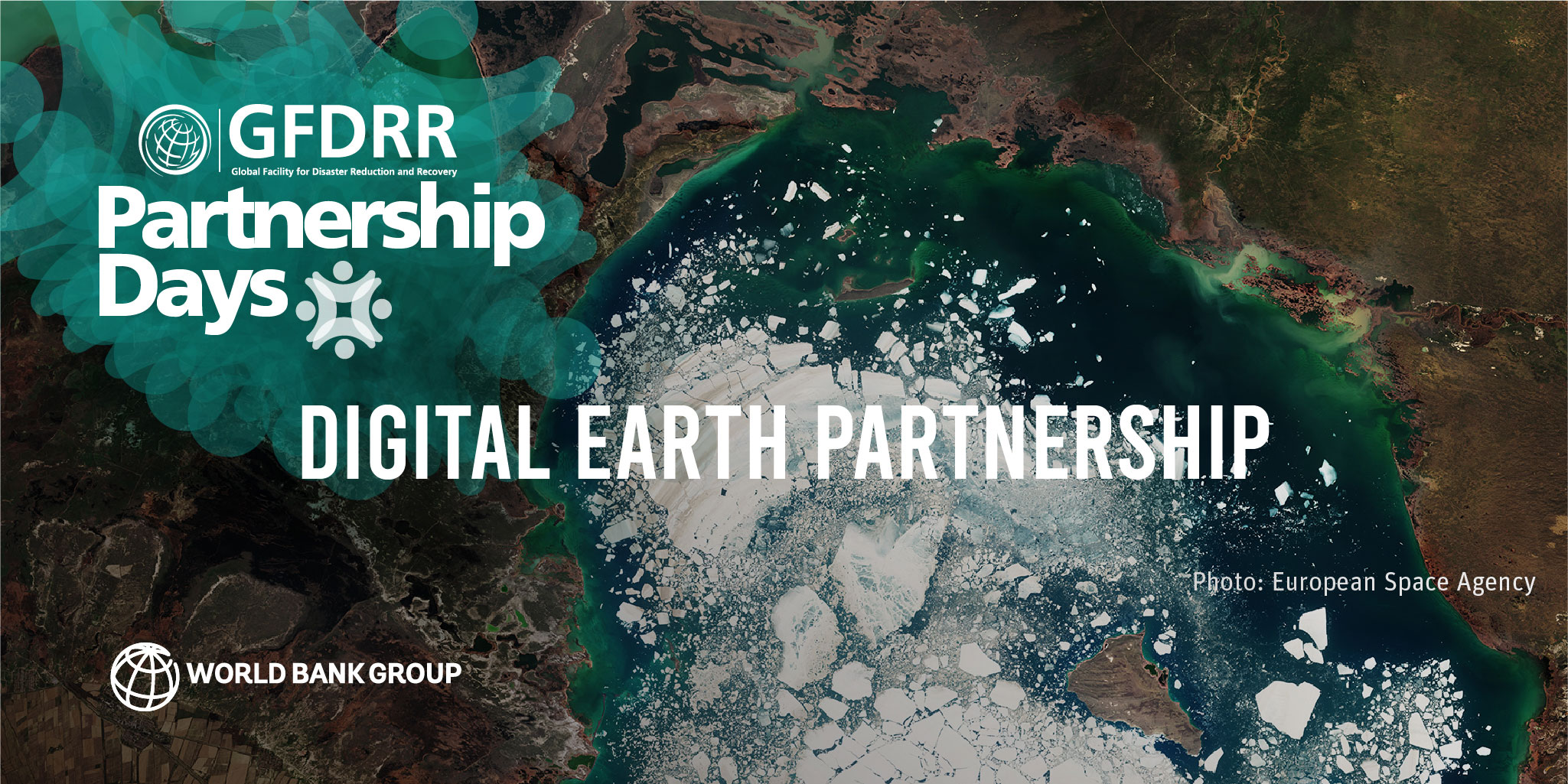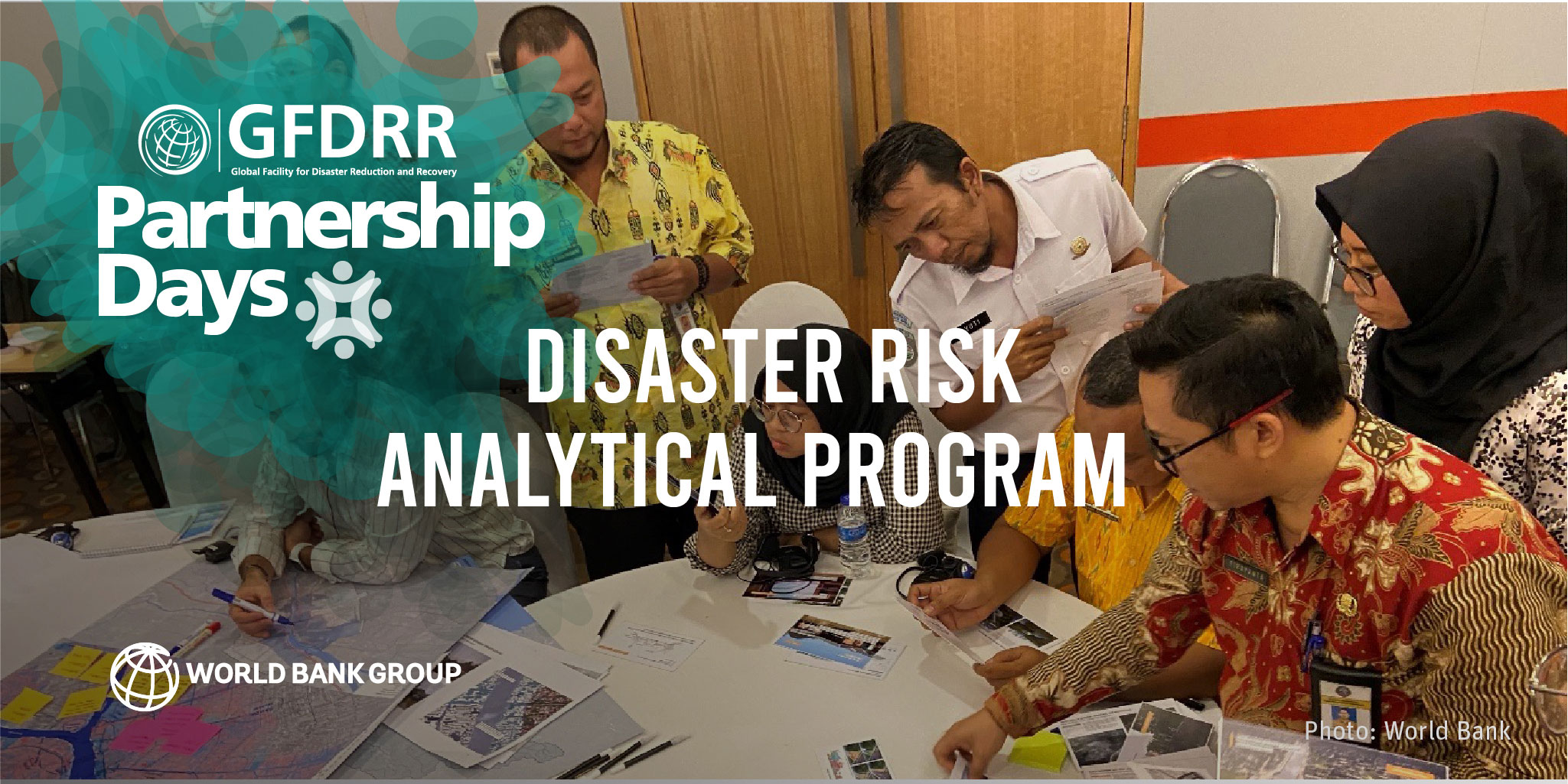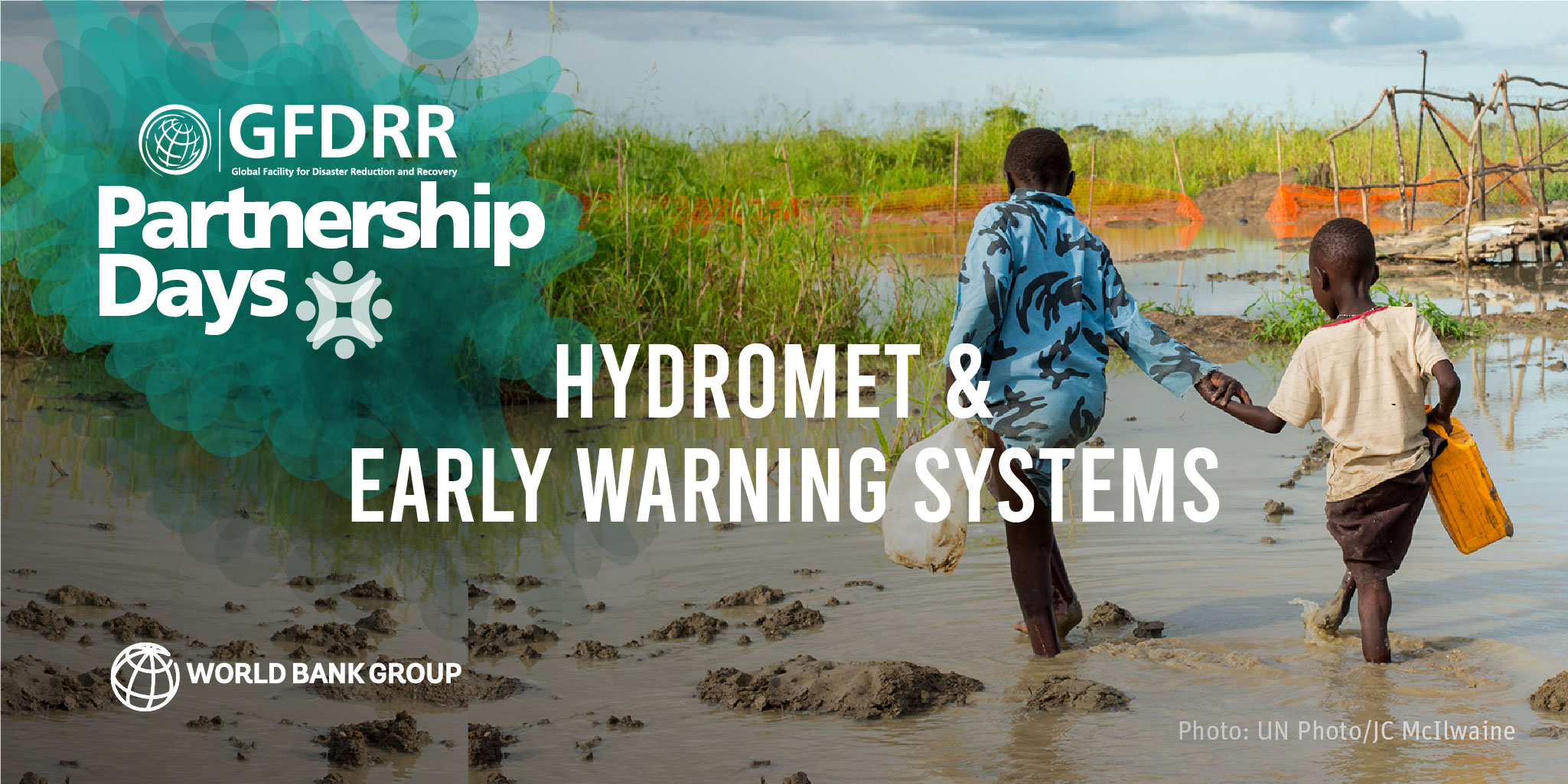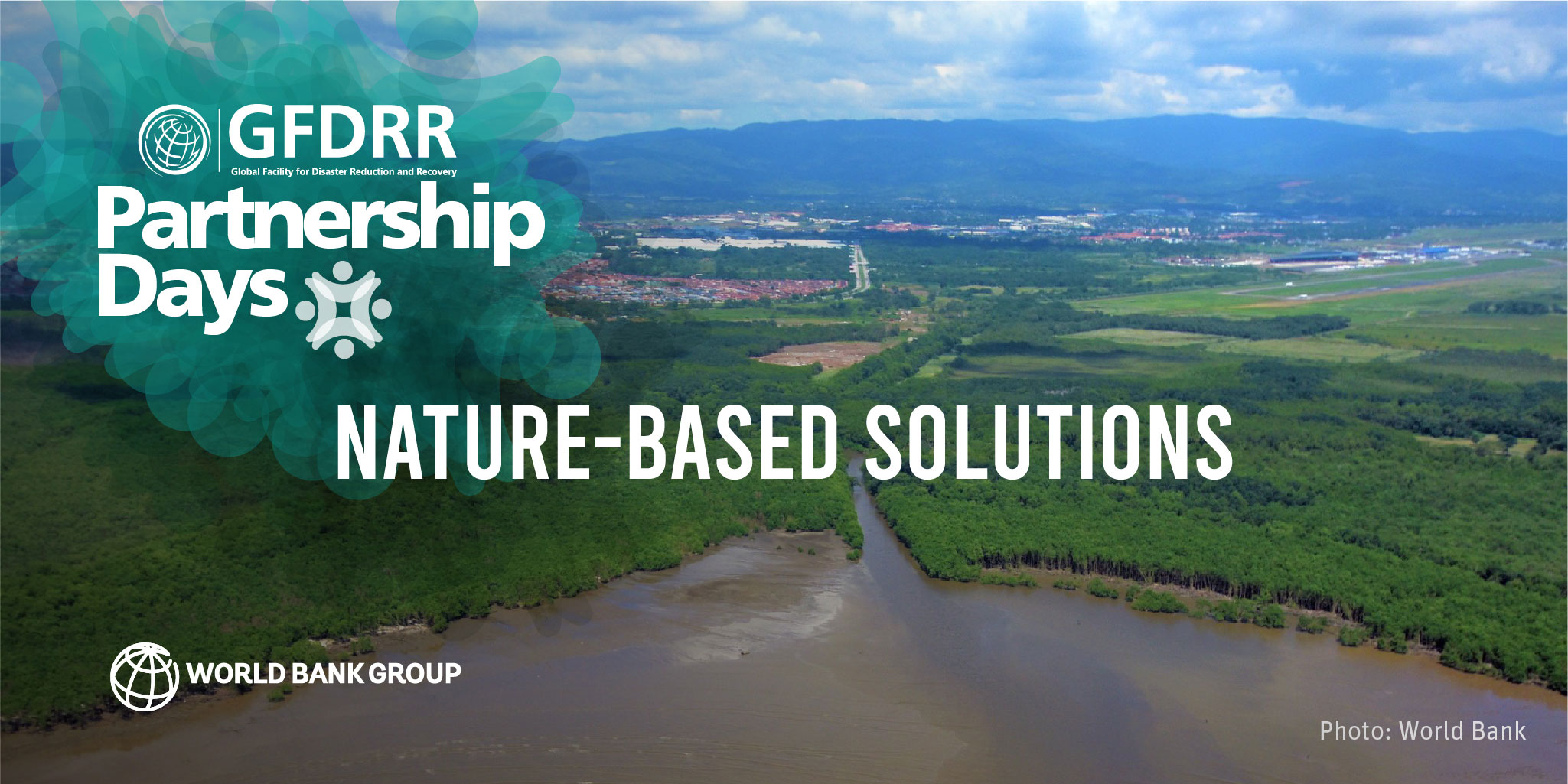Skip to main content
The City Resilience Program (CRP) is a multi-donor GFDRR initiative focused on increasing financing for urban resilience. CRP’s vision is resilient cities with the capacity to plan for and mitigate adverse impacts of disasters and climate change, thus enabling them to save lives, reduce losses, and unlock economic and social potential. CRP aims to catalyze a shift toward longer term, more comprehensive multi-disciplinary packages of technical and financial services, building the pipeline for viable projects at the city level that, in turn, build resilience.
Featured speakers include:
-
Manuela Chiapparino, Senior Operations Officer, GFDRR
-
Steven Rubinyi, Disaster Risk Management Specialist, GFDRR
For more information, please contact Steven Rubinyi (srubinyi@worldbank.org).
Access to information for risk-informed decision-making is critical for countries and communities, yet it proves to be an incredible challenge under the COVID-19 pandemic and accelerated climate change. The European Space Agency and the World Bank have partnered for more than a decade to address global development challenges. Today, GFDRR's new Digital Earth Partnership (DEP) and the ESA Global Development Assistance Program (GDA) open the opportunity to combine the power of Earth Observation approaches with longstanding experience collaborating with local people to collect, contextualize, and calibrate risk data. This breakout session features GDA's current and upcoming Knowledge Development areas of engagement and World Bank case studies highlighting the power of combined Earth observation and local capacity building for development.
Featured speakers include:
-
Edward Anderson, Senior Technology and Resilience Specialist, GFDRR
-
Alex Chunet, Geospatial Specialist hosted by the Digital Earth Partnership program and representing the European Space Agency
-
Pierre Chrzanowski, Disaster Risk Management Specialist, GFDRR
For more information, please contact Grace Doherty (Gdoherty2@worldbank.org).
Increasingly, rapid and reliable post-disaster damage estimates are crucial for governments to take action. GRADE is a remote, desk-based, rapid damage assessment method using disruptive technology that produces highly accurate results cheaply. Since 2015, GRADE has successfully been applied in over 25 disasters leveraging hundreds of millions in recovery and reconstruction financing. However, ex-ante risk mitigation and resilience building are also key to avoid major hazard events from turning into disasters. The Unbreakable webtool can help policy makers prioritize actions needed to strengthen socioeconomic resilience that also protects the most vulnerable. The session will highlight these paradigm shifting methods, tools and applications.
Featured speakers include:
-
Paolo Avner, Urban Economist, GFDRR
-
Alvina Erman, Economist, GFDRR
-
Rashmin Gunasekera, Senior DRM Specialist, GFDRR
-
Ron Jackson, Head of the Disaster Risk Reduction and Recovery for Building Resilience Team, UNDP
-
Dr. Harriette Stone, Foreign, Commonwealth & Development Office (FCDO), Government of the United Kingdom
For more information, please contact Rashmin Gunasekera (rgunasekera@worldbank.org) and Alvina Erman (aerman@worldbank.org).
This session will cover how the theory of change works in the case of Hydromet Program, and include a presentation of program objectives and its main pillars, including analytics and capacity building, as well as the program's partnerships with organizations and initiatives such as the World Meteorological Organization (WMO), the Climate Risk Early Warning Systems (CREWS) Initiative, the Alliance for Hydromet Development, the Systematic Observations Financing Facility (SOFF) and the Global Weather Enterprise (GWE).
Featured speakers include:
-
Anna-Maria Bodganova, DRM Specialist, World Bank
-
Verena Hagg, Senior Expert and Deputy Director for International Financial Institutions, Austrian Federal Ministry of Finance
-
Arlene Laing, Coordinating Director, Caribbean Meteorological Organization (CMO) and Permanent Representative of the British Caribbean Territories, WMO
-
Makoto Suwa, Senior DRM Specialist, World Bank
-
Vladimir Tsirkunov, Lead Specialist, GFDRR
For more information, please contact Tetiana Shalkivska (tshalkivska@worldbank.org).
The interlinked challenges of disaster risk, climate change, poverty, biodiversity loss and COVID-19 call for integrated solutions that address risks while benefiting the wider population. GFDRR and the World Bank are increasingly turning to nature-based solutions (NBS) to address these challenges and to promote green resilient and inclusive development (GRID). Since 2012, the World Bank has invested over $5 billion in NBS interventions such as mangrove and coral reef restoration, the development of urban parks, targeted reforestation and the revitalization of wetlands to address hazards such as flooding, coastal erosion and landslides. This session will highlight two exemplary NBS operations that are being implemented by governments in Sri Lanka and Rwanda with support from GFDRR. Furthermore, it will show examples of innovative analytical work that supports successful NBS strategies from countries including Suriname, Panama and Indonesia.
Featured speakers include:
-
Abebaw Alemayehu, Senior Urban Development Specialist, World Bank
-
Priyanka Dissanayake, DRM Specialist, World Bank
-
Brenden Jongman, Senior DRM Specialist, GFDRR
-
Mark Lawless, Director, JBA Consulting
-
Defne Osmanoglou, Consultant, World Bank
-
Boris Ton Van Zanten, ET Consultant, GFDRR
For more information, please contact Brenden Jongman (bjongman@worldbank.org).
